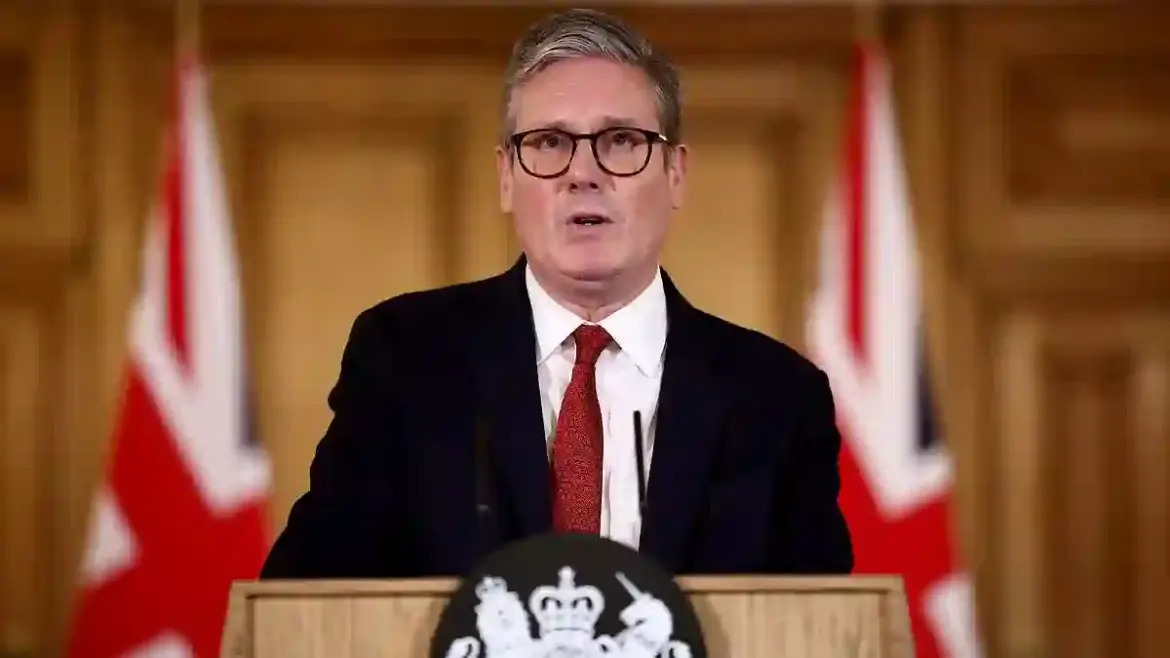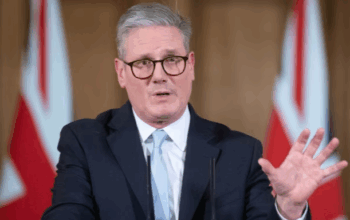In a dramatic attempt to regain control over his government, Keir Starmer has launched a major reshuffle at No10, moving key figures into new roles just as the pressure mounts on Labour ahead of a crucial Autumn Budget.
The Prime Minister is aiming to strengthen his grip on economic policy, bringing in advisers who have long championed higher taxes as public finances face a widening gap.
Key Departures Shake Up Downing Street
The reshuffle began with a shock exit as strategic communications director James Lyons announced he is leaving after less than a year in the role.
Lyons, who described his tenure as a chance to “get a grip” on Whitehall communications, leaves behind a string of high-profile predecessors including Matthew Doyle and Sue Gray.
His departure raises questions about Starmer’s judgment in selecting and retaining top aides.
New Faces in Top Positions
Several new appointments aim to cement Starmer’s influence:
-
Treasury minister Darren Jones has been promoted to a new position as Chief Secretary to the Prime Minister, tasked with enforcing the PM’s economic priorities.
-
Former Bank of England deputy governor Minouche Shafik has been appointed Starmer’s chief economic adviser, a move critics say signals a heavier focus on wealth taxes.
-
Dan York-Smith, a senior Treasury official, takes over as Principal Private Secretary, while Tim Allan, former adviser to Tony Blair, becomes Executive Director of Communications.
-
Vidhya Alakeson expands her responsibilities, overseeing policy and delivery in No10.
These moves appear designed to tighten Starmer’s control over financial and strategic decisions, especially after past missteps over winter fuel payments and benefits reforms.
Rising Stars or Controversial Picks
While some praise the new team’s expertise, others warn of potential missteps.
Darren Jones, known for his outspoken views on taxes and welfare, has a history of controversial public statements, including contentious remarks about Channel migrants and Labour’s benefits policies.
Critics describe him as “gaffe-prone,” raising concerns about his media presence in such a high-profile role.
Wealth Taxes Take Centre Stage
The new economic team signals a clear shift toward raising revenue through wealth taxes.
Jones, Murray, Tomlinson, and Shafik have all previously supported measures targeting inheritance, pensions, and capital gains.
With the public finances reportedly facing a shortfall of up to £50 billion, there is speculation that Chancellor Rachel Reeves may push through another round of eye-watering tax increases in the upcoming Budget, a move that has sparked unease among voters and businesses alike.
Minouche Shafik: Starmer’s Economic Brain
Baroness Shafik, Starmer’s newly appointed chief economic adviser, has spent much of her career in academia, the civil service, and the International Monetary Fund.
She co-chaired a Resolution Foundation inquiry advocating reforms to inheritance and pension taxation—policies that were partially implemented in Reeves’ first Budget.
Critics argue Shafik lacks private sector experience and market influence, but supporters say her expertise could help Starmer navigate the looming economic challenges.
Tory Critics Slam the Reshuffle
Conservative voices have been quick to attack the No10 shake-up.
Tory chairman Kevin Hollinrake described it as a government “totally distracted from fixing the damage they’ve done to the economy, jobs, and small businesses.”
Shadow business secretary Andrew Griffith warned that hiring “an establishment academic with no experience of business” highlights Labour’s disconnect from real-world economic challenges.
Public Opinion and Political Pressures
Labour faces a difficult backdrop as public opinion turns against further tax hikes.
A recent YouGov survey found nearly two-thirds of Brits oppose additional taxes, and 55% believe Reeves should be sacked.
Meanwhile, Angela Rayner remains under scrutiny over property dealings, and MPs are pressing Starmer’s team on immigration and asylum policies.
The Autumn Budget Looms Large
As the Autumn Budget approaches, Starmer’s newly reshuffled team will be under intense scrutiny.
With borrowing costs rising, inflation climbing, and public finances in peril, the Prime Minister’s economic advisers must balance the need for revenue with political realities.
Many are watching closely to see whether Labour can avoid repeating past Treasury blunders or whether the so-called “tax fanatics” in No10 will push through unpopular policies despite mounting public opposition.



